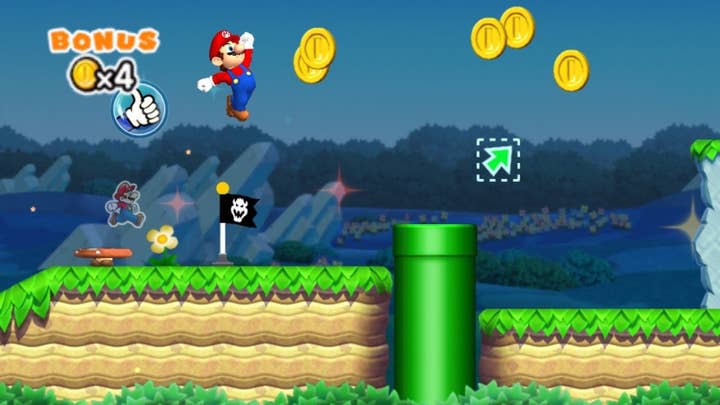Bigger brands, subscriptions and eSports: What to expect on mobile in 2017
Storm8's Terence Fung shares his predictions on how the games market on smart devices will change in the year ahead
For many developers, particularly new and smaller studios, the smartphone remains the best hope of establishing yourself in the games industry. While no-one expects to have a Clash Royale or Pokémon Go-style hit first time, there are still plenty of reasons to be optimistic when aiming to make your mark on mobile.
With the number of smartphones in the hands of consumers still rising - now in excess of 3.5bn units for a global population of approximately 7.5bn - the overall market for mobile games can only be expected to grow in 2017. As such, every company in the space continues to search for that next mega hit that breaks into, and hopefully stays, in the Top 10 Grossing charts. Storm8's chief strategy officer Terence Fung suggests it might come for a more traditional place than you might expect.

"Every year, the bar is set higher," he tells GamesIndustry.biz. "In the top grossing charts, there's no shortage of recognisable brands, including Pokémon, Marvel and Star Wars, so IP-based games are a fairly safe bet. However, for 2017, expect to see more strong IP from the PC/console world rather than just large movie or comic book brands. A few of these have already come to fruition or been announced, like Nintendo's partnership with DeNA and Square Enix working with Machine Zone on a Final Fantasy XV mobile MMO."
The last major news from the smartphone market in 2016 obviously came from the former partnership with the arrival of Super Mario Run. One month after launch and all eyes are still on the mobile platformer to work out whether Nintendo's much-lauded but arguably pricey 'free-to-start' business model will pay off. If it does, it could spark a new wave of higher-priced premium games that begin as a free sample.
Fung argues that the popularity of Mario as an IP means Run was always bound to "experience strong early momentum no matter the monetisation model", but that too much gravitas has been given to whether it converts free users into purchasers at launch.
"Nintendo's biggest missed opportunity around Super Mario Run is not taking advantage of the strong download velocity in these early days"
"The bigger question is how the game will perform over time," he says. "To this end, Nintendo's biggest missed opportunity around Super Mario Run is not taking advantage of the strong download velocity in these early days and having a content/service roadmap to retain players over the longer term."
Fung doubts that 'free-to-start' is poised to become the dominant model in 2017, with developers more likely to continue relying on the proven strategy of free-to-play and in-app purchases. But the growth of more established video game brands - both from within the mobile market and without - should see another business model gain momentum: subscriptions.
"There is a subset of games that have strong enough brand power and gameplay style that players could be willing to pay a premium," says Fung. "The most successful of these premium games should be launched with strong enough gameplay and features that can support ongoing subscription and micro-transactions for things such as character customisation. This will maintain player interest over the long haul, similar to major console titles like Destiny, FIFA, and so on. Already we've seen Minecraft's success with its Realms monthly subscription service enabling online multiplayer gameplay.
"While in-app purchases will remain the dominant monetisation strategy for mobile game publishers, 2017 could be a big year for subscriptions. A number of developers have already introduced a subscription component, notably Microsoft/Mojang's Minecraft, Seriously's Best Fiends Forever, Ubisoft's Just Dance and Smule apps. Subscriptions can benefit developers given a higher revenue share with the app stores, customer loyalty and revenue predictability. However, developers will need to provide consumers with strong ongoing value to sign up for and maintain their subscriptions. This could include episodic content or VIP services, such as multiplayer gameplay, communication tools, game bonuses, and so on.
"By the end of 2017, there might even be a new Top 50 grossing game that garners more than 50% of its revenue from subscriptions."

It's not an uncommon view. Back in November, research firm App Annie told us it expects Netflix-style subscriptions to become more commonplace on mobile, and it's the model that new streaming service Hatch believes will pave a better future for premium games. The latter, of course, depends on making streaming not only viable for mobile but acceptable to consumers. Super Mario Run already met backlash for requiring a constant internet connection purely to prevent piracy, so are mobile users about to welcome titles that are even more dependent on being online?
"The question for mobile game streaming is around the value proposition for consumers and whether it's strong enough to stand out relative to existing options," Fung says. "Having a curated experience can be helpful but most players would be unwilling to pay a premium to benefit from curation, particularly if the content is limited.
"New downloads, updates or in-app purchases can be a powerful incentive for consumers, but only if game performance is truly seamless relative to a native experience. Similarly, having a service that enables multiplayer experience off of any single player game can be interesting.
"The best social, multiplayer experiences have always been built from the ground up with this in mind. All that being said, if this service [Hatch] can scale, this would help address the biggest issue developers face today: app discovery."
"By the end of 2017, there might be a Top 50 grossing game that garners more than 50% of its revenue from subscriptions"
New business models aren't the only thinks Fung expects to expand in 2017. With virtual reality steadily gaining mainstream awareness, mobile remains the optimum first experience for new users and a potential solution to moving them towards high-end devices like Oculus Rift and HTC Vive.
"The mobile VR market will only continue to grow as mobile handsets continue to become more powerful - an iPhone 7 A10 chip arguably has the power and efficiency to handle the workload of a full PC - and major stakeholders such as Google and Samsung continue to drive innovation," says Fung. "Ultimately 2017 will still be an experimentation year with VR - we're still in the early days, but it's a very exciting time."
Instead, the Strom8 exec suggests another area that could provide major growth in the year ahead: eSports: "It's worth keeping close tabs on the eSports mobile market. There's no doubt that we are still in the very early days as few mobile games have achieved mass eSports adoption. However, given that the overall competitive games market increasingly revolves around pro and amateur organisations and spectators, mobile adoption is simply a question of when and not if."
The future won't be rosy for everyone, however, as Fung warns that he expects "further consolidation in the mobile games space". For all the potential growth areas in terms of game types, technology and business models, it still remains an incredibly competitive and sometimes punishing market, particularly for new studios. Fortunately, the larger mobile firms will always be on the lookout for new talent to acquire.
"With smaller developers struggling to find funding for their projects both from publishing and financial partners, expect to see numerous teams getting picked up," he says. "On the other end of the spectrum, with Netmarble's announcement of the acquisition of Kabam's Vancouver studio likely filling the last piece of its pre-IPO puzzle, we might finally see a major game publisher outside of China test the IPO waters since Paradox Interactive listed in May."
Ultimately, what the mobile market really needs in 2017 is new ideas. While that might come from tried and tested brands, or play it safe with proven business models, everyone is hoping to see something that might finally loosen the grip that Supercell, King, Rovio et al hold on the charts. Fung's final advice to developers is simple: make it memorable, make it mobile.
"For a game to truly stand out and sustain, it has to be fresh and fun in the eyes of the consumer," he says. "The challenge for developers will be to deliver that experience in a manner that's truly appropriate for a mobile audience: easily understandable in the first few minutes yet holding much deeper gameplay, playable in multiple sessions per day with potential for much longer session lengths, and a monetisation model that doesn't make a player feel guilty/upset for opening their wallet."
